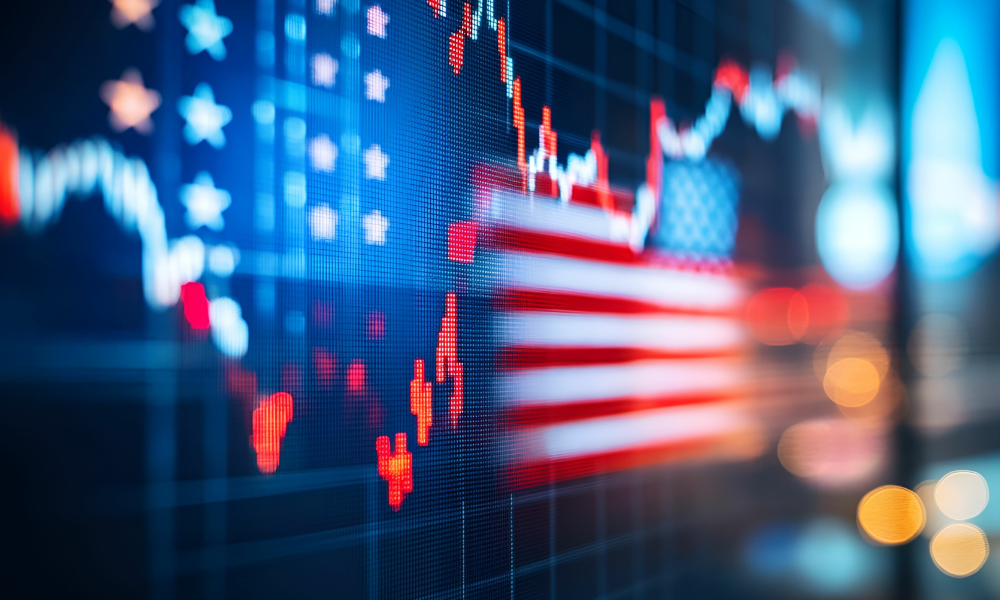

As markets experience heightened volatility, a growing number of retail investors and economists are questioning whether President Donald Trump’s policies will drive the economic opportunity that once fueled Wall Street’s enthusiasm.
While the bloody Monday in the markets could offer an attractive entry point for the most bullish speculators, many others are questioning when it will be safe to go back into the water as inflation fears and tariff concerns cause widespread mayhem.
The chaos continued Tuesday morning with headlines of a fresh tariff threat against Canada. After the province of Ontario announced a 25 percent tariff on electricity going into the US, Trump hit back with an additional 25 percent levy on all steel and aluminum products coming in from the Great White North, taking the total to a whopping 50 percent.
Signs of hesitation are emerging among retail investors and their advisors who might have been once eager to buy the dip.
“We're seeing less and less dip buying than we've seen in a while, which tells us people are stepping back a little bit," Joe Mazzola, head trading and derivatives strategist at Charles Schwab, told Reuters. The firm has observed increased risk aversion among its clients since mid-February, with those managing larger portfolios shifting to a net-seller position.
Andrew Graham, managing partner of Jackson Square Capital, told the news outlet he has been increasing cash allocations for high-net-worth clients to levels not seen since the early pandemic years. “Cash is now well over 10% of most of my clients’ portfolios,” he said, adding that he continues to trim stock exposure.
Broadly, liquidity levels remain elevated, with assets in money market funds hitting a record $7.3 trillion, according to Crane Data. This trend suggests that many investors prefer to stay on the sidelines rather than bet on a swift market rebound.
Wall Street analysts are also reassessing the market implications of Trump’s policy approach. His proposed tariffs and fiscal strategy – described by some of his advisers as an economic "reset" – are fueling concerns about a potential recession. Treasury Secretary Scott Bessent acknowledged that such policies could introduce economic "pain" in the short term, while Commerce Secretary Howard Lutnick warned of possible inflationary spikes.
Dario Perkins, an economist at GlobalData TS Lombard, noted that optimism surrounding Trump’s policies has faded. “People could only see the good side of what Trump was promising to do. That has basically evaporated, and now, we’re back to recession watch,” he told the Wall Street Journal.
A bevy of economists have dimmed down their outlooks for the world's largest economy, including the team at JPMorgan Asset Management led by David Lebovitz. But even as they ratchet up the odds of a US recession to 20 percent, Lebovitz continues to argue there are opportunities for who know how to pick their spots. He believes select assets – notably US tech and financials – could offer value once the S&P 500 drops below the 5,500 mark.
“This selloff may well have a little bit further to go, but we’re certainly not running for the hills,” Lebovitz told Bloomberg.
While he doesn't see a Wile E. Coyote-type plunge in the US economy just yet, Lebovitz acknowledged that the pace of growth has slowed. With that backdrop, Kiran Ganesh, global head of investment communications at UBS Global Wealth Management, and his team are reportedly battening down the hatches with hedges, but not selling equities.
“It makes sense to position still for upside,” he told Bloomberg, highlighting areas such as electrification and AI. “We do think that we should still consider that this is an administration that has set itself out with achieving quicker wins and quicker successes.”

The McKinsey veteran brings her expertise as LPL targets a lofty 90% advisor retention rate from its acquisition and integration of the $300 billion RIA.

An appeals court sided with a pension fund, ruling Perfection Bakeries must apply a $2M credit earlier in its withdrawal liability calculation.

Veteran advisor managing $400M launches firm through strategic partnership.

The giant hybrid RIA's latest East Coast move adds $175 million in recruited assets as it looks to offset broader advisor attrition.

Also, Nitrogen has added Indivisible Partners to its integration network, while Wealthtender unveiled an AI-focused update to help boost advisors' online presence.
Orion's Tom Wilson on delivering coordinated, high-touch service in a world where returns alone no longer set you apart.
Barely a decade old, registered index-linked annuities have quickly surged in popularity, thanks to their unique blend of protection and growth potential—an appealing option for investors looking to chart a steadier course through today's choppy market waters, says Myles Lambert, Brighthouse Financial.
